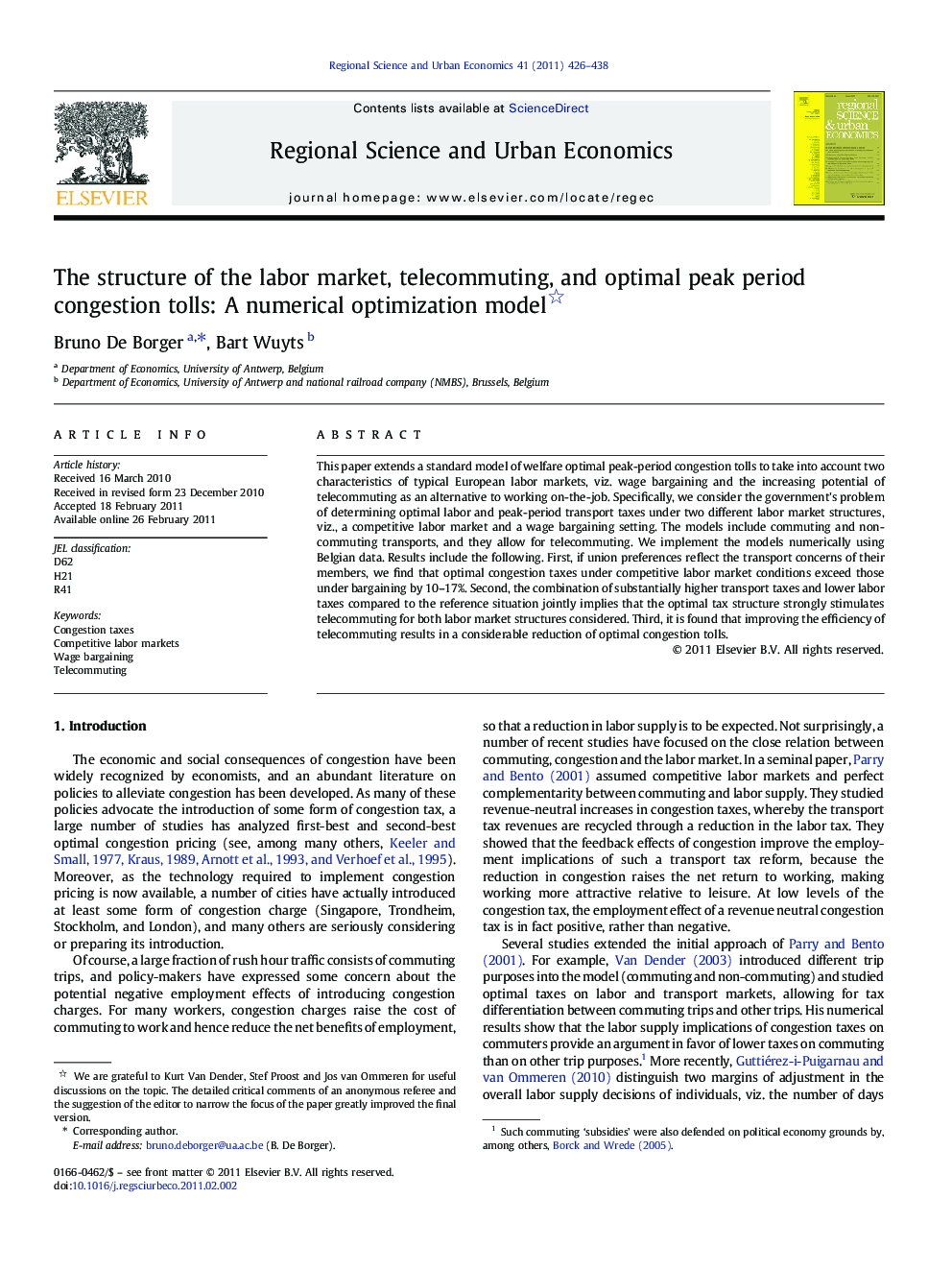| Article ID | Journal | Published Year | Pages | File Type |
|---|---|---|---|---|
| 981463 | Regional Science and Urban Economics | 2011 | 13 Pages |
Abstract
This paper extends a standard model of welfare optimal peak-period congestion tolls to take into account two characteristics of typical European labor markets, viz. wage bargaining and the increasing potential of telecommuting as an alternative to working on-the-job. Specifically, we consider the government's problem of determining optimal labor and peak-period transport taxes under two different labor market structures, viz., a competitive labor market and a wage bargaining setting. The models include commuting and non-commuting transports, and they allow for telecommuting. We implement the models numerically using Belgian data. Results include the following. First, if union preferences reflect the transport concerns of their members, we find that optimal congestion taxes under competitive labor market conditions exceed those under bargaining by 10-17%. Second, the combination of substantially higher transport taxes and lower labor taxes compared to the reference situation jointly implies that the optimal tax structure strongly stimulates telecommuting for both labor market structures considered. Third, it is found that improving the efficiency of telecommuting results in a considerable reduction of optimal congestion tolls.
Related Topics
Social Sciences and Humanities
Economics, Econometrics and Finance
Economics and Econometrics
Authors
Bruno De Borger, Bart Wuyts,
